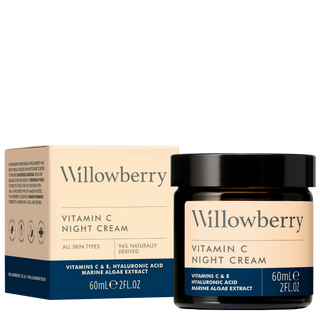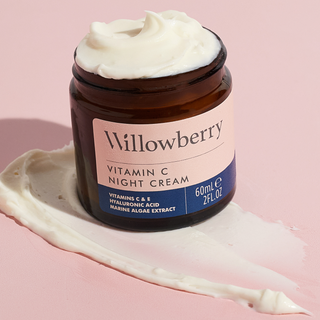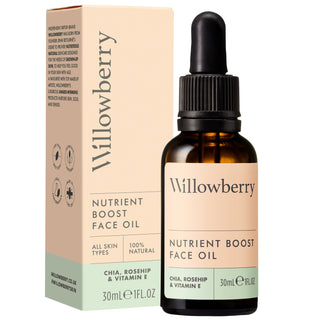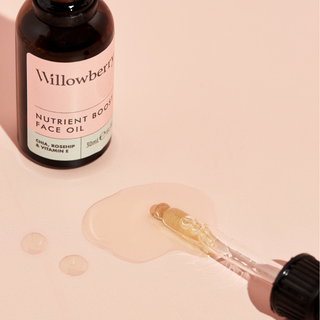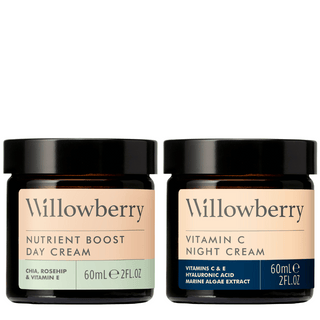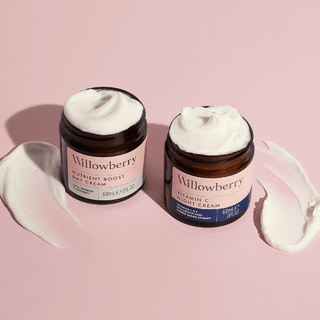Our knowledge of the dangers of sun exposure has come a long way from the days of tanning oils and sun beds. Of course, sunshine is a vital life force to be celebrated, not only as a mood-enhancer but also as a vitamin D booster. The downside is that over-exposure to the sun’s UV (ultra-violet) rays causes damage to the skin, eyes, immune system and can even lead to skin cancer.
Our best-selling Willowberry Nutrient Boost Day Cream (voted Indy Best day cream by the Independent) doesn’t contain SPF, although we know many of you look for a moisturiser with SPF incorporated. It's a question we get asked a lot and something we’ve looked into, and for now we believe it is better to have an SPF that is separate from your skincare. To explain why, we answer your SPF-related questions, with the help of experts at the British Skin Foundation.
My moisturiser contains SPF so why do I need to buy a separate SPF?
These days, many cosmetic products contain added SPF (sun protection factor) so do we really need to buy a dedicated sun protection product as well? The short answer is yes and to find out why, we asked the experts at the British Skin Foundation.
Consultant Dermatologist and British Skin Foundation Spokesperson Dr Thivi Maruthappu explains: “I recommend having a separate SPF product rather than relying on what’s in your skincare, as you may not be using adequate amounts of moisturiser to achieve the SPF rating on the bottle.”
The fact is that while many skincare products and even some make-up items do contain an SPF, you don’t slather them all over as you should with your sun cream. Skincare products with added SPF also may not contain protection from both UVA and UVB rays, which any sun protection product should, to offer full protection.
How much SPF should I use?
Probably more than you think. Sun protection needs to be applied liberally, thoroughly and equally across the face. It’s definitely more of a slather than a dab situation. Dr Maruthappu says, “for your face and neck, a half teaspoon distributed evenly is the correct amount”. If that’s tricky to estimate without a teaspoon to hand, one trick we use when applying is to squeeze the sun cream down the length of two fingers. This should give you enough to cover the face and neck not forgetting tops of ears, eyelids, lips and the back of your neck. If you need more, then go for it. This is not the skincare step to skimp on. Once applied, Dr Maruthappu advises, “re-apply every two hours, particularly if you have been sweating or sitting outside for long periods of time”.
So taking it back to your skincare, the recommended amount of SPF needed is way more than you would apply with your usual skincare products, and you don’t tend to re-apply your skincare throughout the day. Plus, people don’t necessarily apply their skincare evenly across their face, which is essential with SPF application.
What level of SPF is best?
First of all, make sure your sun cream is ‘broad spectrum’ as that means it offers protection against both UVA and UVB rays. The higher the number of the SPF, the more protection it offers. As a guide, Dr Maruthappu says, “I usually recommend between factor 30 and factor 50 but it really depends on your skin type, for example, if you are fair and burn easily then SPF50 would be more appropriate”. And yes, you should still wear it on cloudy days.
Which step should I use SPF within my skincare routine?
When it comes to your face, sun cream should be applied in the morning after cleansing and moisturising and before make-up. Do your skincare routine as usual then once all that is on, it’s then time to liberally apply your sun cream before putting on any make-up.
To make re-application easier if you are wearing make-up, you can use an SPF spray designed for that purpose. Just type ‘over make-up SPF spray’ into your search engine to browse the options.
Do I need separate SPF products for body and face?
Dr Maruthappu says it is down to individual skin needs: “It is not necessary to always use a specific SPF for the face and body, but it is helpful if you have any underlying skin conditions such as acne, rosacea or pigmentation. There are specific facial SPFs which are more suitable for skin prone to these skin conditions.”
If you are out in the sun, SPF is only one part of safe sun behaviour. Seek out shade, especially around the middle of the day, stay hydrated and cover up with a hat, sunglasses and loose clothing in hotter climes. Your skin, and your health, will thank you for it.
Shop our Willowberry Nutrient Boost Day Cream here.
Willowberry is nutritious natural skincare for grown-ups, for your best skin.
A favourite with top make-up artists, Willowberry's luxurious award-winning products protect skin’s natural barrier function, to nourish and revive grown-up skin without telling women to be 'anti-ageing'.
As seen in Vogue, Independent, The Telegraph, This Morning and more.




